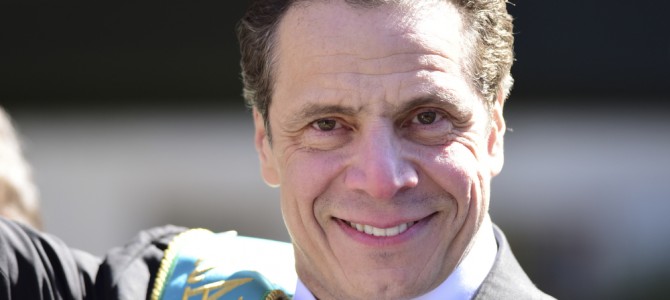During the first two months of the Chinese virus crisis, most in our media depicted New York Gov. Andrew Cuomo’s public persona as “It is so refreshing to see real leadership.” After years of bashing Donald Trump for his tone and supposed rejection of norms, the media found in Cuomo a kind of anti-Trump.
His tone was supposedly perfect. But we are now learning that his actual response to the crisis left quite a bit lacking, to say the least.
The general media attitude was nicely summed up by CNN’s Chris Cilizza in a May 1 article about Cuomo’s soaring poll numbers: “Cuomo’s daily press briefings on the state of the state’s fight against the virus have become must-see TV — as Cuomo ranges from stern father to loving counselor to frank friend and back. He has also benefited from radical transparency about what he knows and doesn’t know about the state’s fight against the coronavirus.”
But this week a devastating report from Pro Publica shows that, behind the scenes, when he wasn’t making “must-watch TV,” Cuomo’s slow response and child-like feud with New York City Mayor Bill de Blasio hampered the city and state’s early efforts to contain the coronavirus. As for radical transparency, Cuomo has still offered no good explanation for the state’s policy toward nursing homes that fostered the most deadly petri dishes.
This reveals something interesting about the roles of tone and norms in politics and governance. Critics of Trump’s hyperbolic rhetorical style and willingness to say things that offend them seem to think that good tone and maintenance of norms by a politician indicates he is pursuing positive policies and in control of the situation, but this is often not the case. In fact, a polished tone more often elides failures than it symbolizes success.
Here’s an example. Would Barack Obama have ever called the press “the enemy of the American people”? Certainly not. But would his administration spy on journalists? Absolutely, and it did. Would Obama cackle about political opponents going to jail? Not a chance. Would his administration try to send political opponents to jail? Yup.
To put it bluntly, Cuomo has not been an effective governor during this crisis, but he has played one on TV. At least in terms of early public opinion, that was enough.
Cuomo’s father, a former governor, was one of the most eloquent politicians of his generation. In 1988 I saw Mario Cuomo speak in South Philly. The old Italian ladies couldn’t have been more thrilled if it were Jesus Christ himself. Andrew is a chip off the old block.
The reason Trump has soaring popularity numbers among Republicans is that they like the results of his policies and either enjoy, laugh off, or shrug off his off-color moments. In 2012, the GOP offered the gold standard of polished tone and norm observance in Mitt Romney. He lost. Now he is the avatar for a small slice of loud conservatives so obsessed with tone and norms that they want to hand the country over to Democrats.
The lesson for everyone here is to pay far more attention to actions taken by elected executives and their administrations than their mere words. For months, the media has focused on blunt and sometimes inaccurate statements by Trump, or tried to manufacture splits between him and his medical experts rather than report on the actual federal response.
Likewise, coverage of Cuomo has glowingly focused on his silky delivery and central casting tone. Of course he must have been doing all the right things; just listen to how eloquent he is. But he wasn’t, and the media missed that story even though deaths in New York were piling up every day more than anywhere else in the country.
Trump and Cuomo have engaged in a delicate dance during the pandemic. While they have worked well in concert and often praise each other, the media has set them up as opposites, if not opponents. Both men faced an unprecedented situation with few good answers. Both made mistakes. Both also made some good decisions. Eventually, perhaps, we can go back and get a clearer picture of what worked and what didn’t.
In the meantime, let’s keep focus where it matters. Let’s pay more attention to actual results and less to the niceties and norms of tone.









